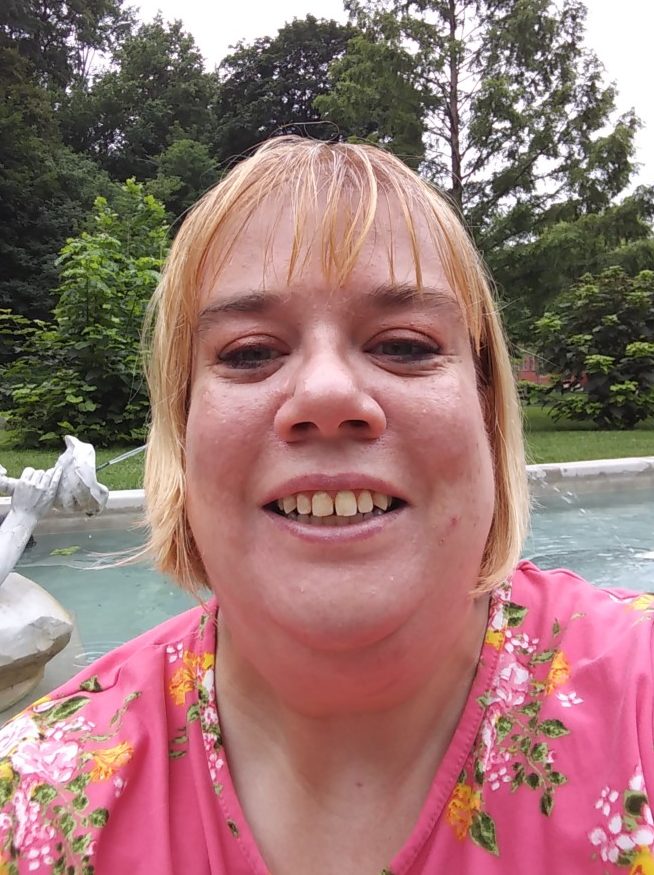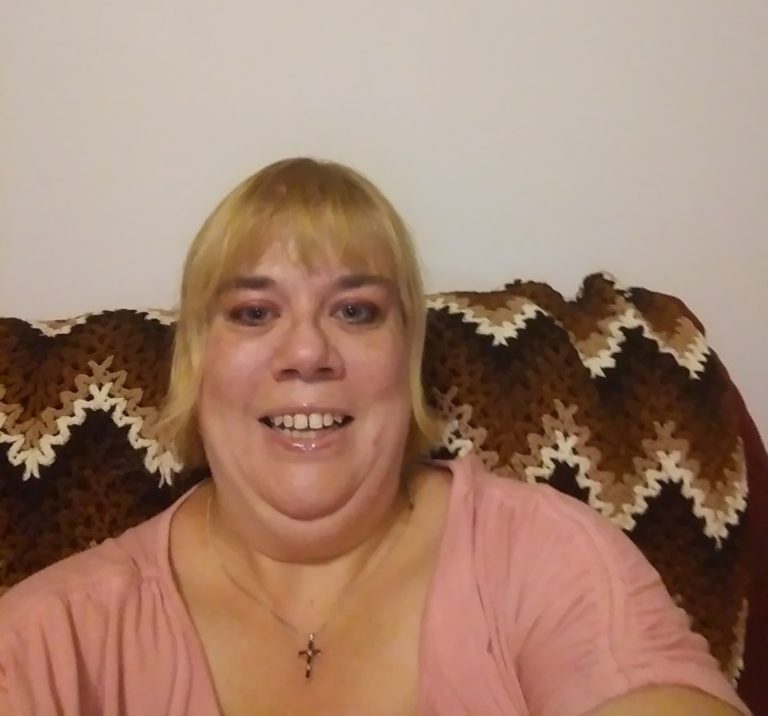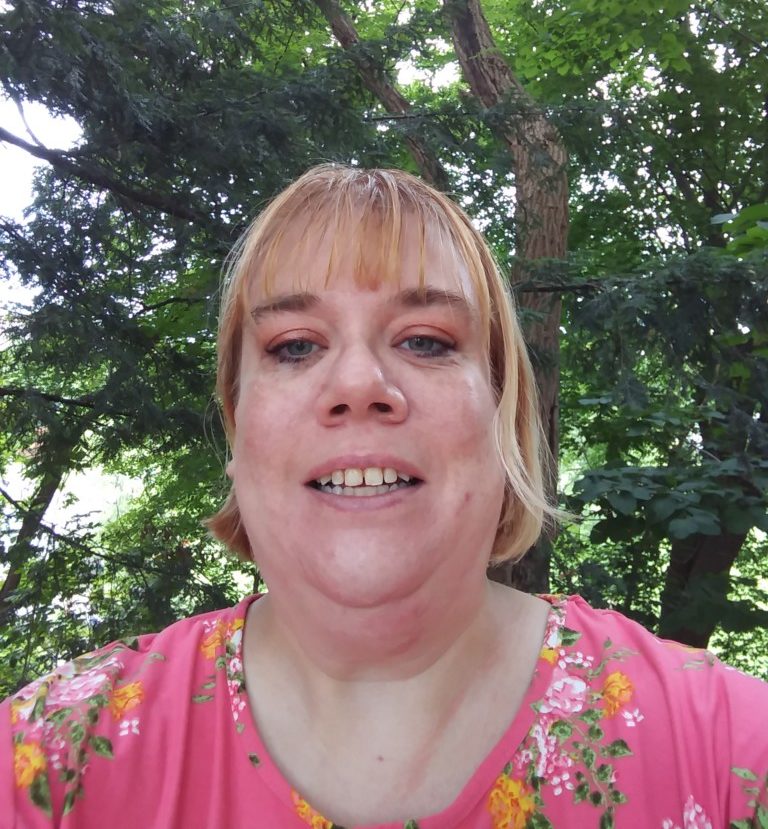“Since being in supportive housing, I am able to manage my medications, maintain a budget, and manage my mental health symptoms with very little guidance or support.”
 Amanda, a current participant in the RISE Supported Housing program and former participant in the Progressive Steps Apartment Program (PSAP), has been successfully living independently for the past seven years. She has a disabling mental health condition which precludes her from being able to maintain full time employment, but this does not prevent her from being an active member of our community.
Amanda, a current participant in the RISE Supported Housing program and former participant in the Progressive Steps Apartment Program (PSAP), has been successfully living independently for the past seven years. She has a disabling mental health condition which precludes her from being able to maintain full time employment, but this does not prevent her from being an active member of our community.
Amanda has bachelor’s degree in cultural studies with a concentration in literature, and is pursuing her dream of becoming a writer. She sets aside time each day to work on writing short stories and poetry, with a goal of three submissions per month to various magazines for publishing. Amanda is also a lector at her church, St. Clement’s. Additionally, she volunteers at the Friends of Saratoga Springs Public Library used bookstore a few hours each week. Moreover, she has been a Saratoga County Citizens Committee for Mental Health (SCCCMH) member since 2008, and has volunteered as secretary for their Board of Directors since 2009.
“When I first received my mental health diagnosis while attending college as a young adult, I feared that I would end up homeless.”
“When I first received my mental health diagnosis while attending college as a young adult, I feared that I would end up homeless,” Amanda shares. “I lived with my parents at the time, and I thought I would be dependent on them for the rest of my life. I was scared about what would happen to me once they were gone.” However, being in Supported Housing has enabled Amanda to successfully live in her own apartment with minimal supports from her Supported Housing counselor. “And now,” Amanda proudly shares, “I am able to have an adult relationship with my parents.”
Amanda grew up in Chicago and after graduating high school in 1998, started college with hopes of obtaining her bachelor’s degree, working full time, and living independently as an adult. Then during her sophomore year, she became symptomatic and began struggling with her mental health. “I was court ordered to a mental health unit,” Amanda explains, “and sadly, I had to drop the classes I was taking at that time.” Once she stabilized, Amanda attempted to attend school again, “but,” she says, “it was very difficult. I was only attending college part-time, but the two and a half years I attended school in Chicago was a struggle because of my mental health symptoms. I was not doing well, it was truly stressful, especially while living in in such a big city, like Chicago. Thankfully, after the last psychotic break I had in my mental health, the Office of Handicapped Services assisted me with taking my finals and completing my classes that final semester I attended there.”
In 2002, Amanda’s family moved to Upstate New York. Amanda began attending college part-time at SUNY Empire State, where she obtained her bachelor’s degree after graduating in 2006. This was a great accomplishment because during this time Amanda continued to struggle with her mental health challenges. “I was isolating a lot,” Amanda explains. “I spent a lot of time with my uncle and avoided social situations. It was not a healthy time in my life.” However, Amanda was receiving services at the Saratoga County Mental Health Clinic (SCMHC) at that same time to assist her with managing her mental health symptoms, which enabled her to also manage school.
“I really wanted to be able to work, but my psychiatric disabilities made it too difficult.”
 In 2004, Amanda started attending day treatment at an SCMHC program, Friendship House. “At Friendship House one of the treatment providers, Leslie Grossman Brown, told me about PSAP.” In 2005, she moved into the PSAP Single Site program, where there was on-site staff to assist her with stabilizing her mental health. She remained in PSAP through the spring of 2006, when she moved back with her parents and graduated college.
In 2004, Amanda started attending day treatment at an SCMHC program, Friendship House. “At Friendship House one of the treatment providers, Leslie Grossman Brown, told me about PSAP.” In 2005, she moved into the PSAP Single Site program, where there was on-site staff to assist her with stabilizing her mental health. She remained in PSAP through the spring of 2006, when she moved back with her parents and graduated college.
After graduating college, Amanda attempted to work – tutoring at Schenectady Community College and as a teaching assistant at BOCES, but stress of working full time exasperated her mental health symptoms. “I really wanted to be able to work and eventually move out on my own, but I started hearing voices, and I was very paranoid, making it too difficult to work,” she says. “I also was very dependent on my parents during this time. If I was struggling, my parents would come to my rescue, but because they did, I did not learn to work through things on my own.” Wanting to live more independently, Amanda applied for Supported Housing and was placed on the wait list in 2010. While waiting for a space in the program, she reenrolled in PSAP, where she continued to work on managing her mental health and began developing the skills she would need to live independently.
“One of the things I am most proud about is that I have not been hospitalized since being in RISE programs.”
“One of the things I am most proud about,” Amanda shares, “is that I have not been hospitalized since being in RISE programs. Previously, I had been hospitalized in the psychiatric inpatient unit several times. Whenever my mental health symptoms became too much, I would have to go into the mental health unit to become stabilized. But with the supports that the PSAP and Supported Housing staff gave me, I began to be able to manage my mental health with my medications and by using my coping skills.”
While still in PSAP, Amanda’s best friend passed away from cancer. “My counselors helped me get through that very tough part of my life,” she shares. “I started attending a grief support group from Hospice, which also helped me very much. It was wonderful to have the support I needed to process my grief without my mental health symptoms escalating and having to be hospitalized.”
Once she moved into Supportive Hosing, Amanda began working on the skills she needed to live independently. Lehra Inglis, Supported Housing Counselor says, “At first, Amanda needed lots of guidance. But she worked hard, and over time she became more and more independent. Now she is very independent and only reaches out when she needs a little guidance or to bounce ideas off of someone.” Amanda attributes much of this success to the supportive services she receives from Lehra, “I appreciate Lehra. The support she gives me allows me to live successfully and independently in my apartment. She helped me set and reach several goals over the years,” Amanda explains. “She helped me with managing my symptoms, taking my medications, developing and keeping a budget, and working on my time management skills. Now I am able to manage my medications, maintain a budget, and manage my mental health symptoms with very little guidance or support.”
“When I am struggling and reach out to staff, they talk to me about what coping skills I can use.”
 “I have public housing assistance now,” Amanda says. “But while I no longer utilize the financial assistance for my apartment that Supported Housing provided me in the past, I do continue to need the supports the staff, especially my counselor Lehra, offers to continue to live in my own apartment.
“I have public housing assistance now,” Amanda says. “But while I no longer utilize the financial assistance for my apartment that Supported Housing provided me in the past, I do continue to need the supports the staff, especially my counselor Lehra, offers to continue to live in my own apartment.
When I am struggling and reach out to Lehra or the on-call worker, they talk to me about what coping skills I can use or ask me questions that makes me figure out how I can work through a problem. As a result, I have become much more independent and can often figure things out myself without having to call them for help.”
With the development of the skills she needed to manage her mental health and maintain her own home, Amanda finds that she has the time for other things in her life such as self-care, focusing on her dream of being a writer, and advocacy for individuals with mental health challenges through SCCCMH. “Back in 2008, when I was going to Friendship House, I shared with Leslie that I was interested in changing laws that affect people with mental health challenges. She referred me to SCCCMH, and I have been a member and on the Board as the secretary ever since.” One of the things Amanda enjoys about SCCCMH is being a part of the Mental Health Matters Day each year and going to Albany to speak to the legislators about the challenges and needs of individuals with psychiatric disabilities.
“Reading my poetry before a live audience makes it come alive and is the ultimate reward.”
Amanda submits her poetry for publication to increase readership but reading it before a live audience makes it come alive and the positive feedback she receives is the ultimate reward. “Before the pandemic, I used to read my poetry at Caffe Lena and now that they are hosting open mic nights again, I am looking forward to reading them there again,” Amanda shares. She also has found that reading her poetry before a live audience is also a wonderful coping skill that keeps her from self-harm. “When I was 16 and up until 21, I used to cut myself, mostly for the rush of adrenaline it gave me. It was very difficult to stop because I was addicted to that rush. It was only through my religious faith that I was able to stop. But now, reading my poetry in front of an audience is a safe way for me to get that adrenaline rush I crave.”
Self-care is important to Amanda and doing things that improve her overall wellbeing. She likes to go for walks, go out to the movies, and spend time with friends. She enjoys cooking and having friends over for dinner. “It is exciting for me to try new things. I have all my uncle’s cook books and like to experiment with new things.” Having healthy relationships with her family and friends is very important to Amanda. “I go to 12-step meetings to learn to not be too dependent on others and how to set boundaries so that others are not overly dependent on me,” she explains. “This is hard and there have been times when I’ve had to recognize when a relationship has become unhealthy and make some tough choices about setting strong boundaries for my own emotional health.”
RISE is pleased to be able to share all that Amanda has accomplished while managing her mental health challenges and we are proud to have been a part of her journey. We wish her well as she continues to grow and learn to live a well-balanced, independent lifestyle.
